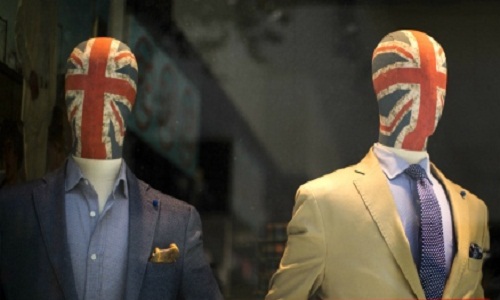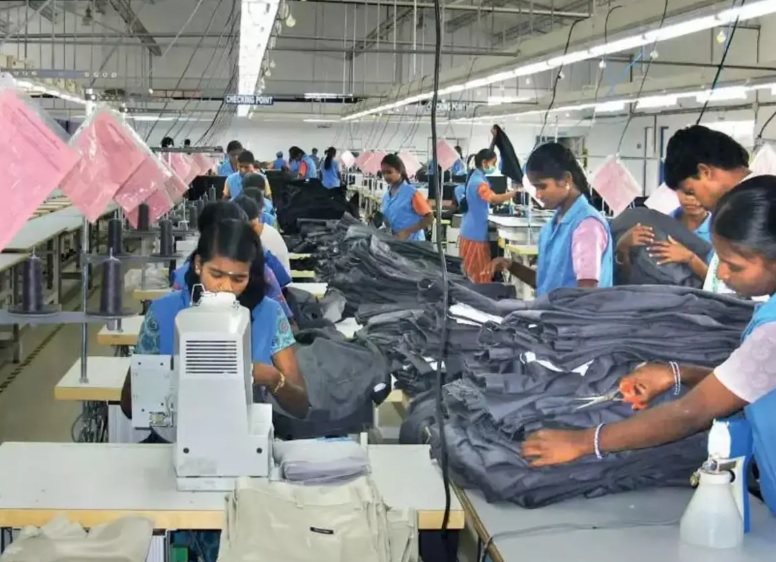FW
Making a fresh start in the beginning of the new year, Oeko-Tex has reviewed the requirements of its products and published its new regulations. A large number of new changes will be made to Made In Green, MySTeP, STeP, and Standard 100. Oeko-Tex are independent textile testing institutes working for enhanced product safety and sustainable production in the textile value chain.
The Oeko-Tex Association has established a new price strategy for the Made in Green by Oeko-Tex product label to fully satisfy market requirements. The new pricing offers label issuers the option to use smaller packets of labels, or even a single label for their product to be labelled with Made In Green by Oeko-Tex.
After having been for three years in the market, Oeko-Tex has revised the STeP by Oeko-Tex limit value tables in Annex G1 and G2 of the standard document. These revisions were influenced by ongoing changes in the global environment, input from customers and current regulatory developments. A new chapter has been added in Annex D: “Hazardous Processes That Should Be Avoided”. These processes that are to be avoided include the use of potentially hazardous surfactants, sodium hypochlorite (as a bleaching agent) and defoamers that are potentially damaging to the environment.
The new regulations for Standard 100 by Oeko-Tex will come into force on April 1 following a three-month transition period. At the parameter ‘per- and polyfluorinated compounds’, a large number of substances have been added or listed explicitly by name in product class I (items for babies and small children) and provided with limit values. As a result, in product class I, the use of per- and poly fluorinated compounds is severely restricted and nearly eliminated. A large number of substances are also included in the list of regulated softeners (phthalates) in all of the product classes. The three organic tin compounds dipropyltin (DPT), monophenyltin (MPhT) and tetraethyltin (TeET) are now regulated with limit values in all product classes. In addition, the use of the blue colourant Navy Blue is also now explicitly prohibited for product certification according to Standard 100 by Oeko-Tex.
Odisha launched the Odisha Apparel Policy recently. Reacting to it, deputy general manager of Odisha Spinning Mills Federation Narayana Sahu said this is the first exclusive policy for apparels by any state and is a positive gesture for industrialists from Tirupur and other clusters to choose Odisha as destination for setting up manufacturing facilities.
Welcoming entrepreneurs to his state, he said that those who wished to make investments in Odisha would be extended a slew of incentives both for setting up standalone apparel production units and opening up units inside apparel parks coming up in Odisha. Incidentally, the government of Odisha is planning to make two apparel parks under the Apparel Policy near Bhubaneswar.
Sahu stated every individual standalone unit would be given an incentive of Rs 1,500 per worker every month for a period of 36 months provided they employ a minimum of 200 workers. Besides this, interest subsidies could also be availed by such units. For the units coming up in the apparel parks, capital grants to the tune of 20 per cent of the project cost would be given, he declared.
The Air Freight rebate scheme for textile and apparel known as the 'Speed-to-Market' Scheme (STMS) as announced in Budget 2016-17 will be launched this month after consultations with the various stakeholders. STMS aims at developing the 'Speed-to-Market' textile and apparel export segment in the wake of Brexit. It will also allow Mauritian textile and apparel exporters to become more competitive vis-à-vis other countries exporting via air freight to Europe.
Another objective will be to enhance the competitiveness of Mauritian exports in the European market especially in terms of speed of delivery while at the same provide support to the textile and apparel enterprises facing difficulties in the wake of Brexit.
The STMS which will be applicable to the textile and apparel manufacturing companies only, will among others; provide a 40 per cent refund on air freight cost to exporters to Europe including UK; be time-bound for 2 years; and will be operated and managed by Enterprise Mauritius. The refund will be applicable for exports as from April 1, 2017.
Owing to declining production of cotton this season, Pakistan will have to import 4 million cotton bales at a cost of $1.50 billion, says an estimate. This situation could worsen the economic situation as loans already given and now imports of such significant amount can create problems for the country’s economy.
Here, it is relevant to mention that the economic growth was affected by 5 per cent owing to the low production of cotton last year. On the other hand, textile mill owners have demanded the government should decrease import duty to 4 per cent on raw cotton. It is also worth mentioning that cotton production increased by 11 per cent compared to last season. However, production was still not sufficient for the current needs.
China's lowering its cotton reserve stocks could lead to more opportunities for exports of US cotton. China has begun a long-overdue reduction of its strategic cotton reserve stocks which have hung over the world’s cotton markets since 2014.
Last summer, the Chinese government sold 12 million bales a much larger number than many analysts expected from its reserve. Now, reports say that China is expanding its textile mill capacity in Xinjiang Province. This could bring some interesting outcomes in world cotton market including the potential for higher cotton prices.
With the opening of 149 new garment and footwear factories in Cambodia last year, as many as 141 old one shut down, says a Labour Ministry report. Based on these figures, the country's garment and footwear industry remained vibrant, it is learnt.
The garment and footwear industry, which is the kingdom's biggest foreign currency earner, consists of around 1,000 factories employing 754,000 workers. Current minimum wage for the workers is 153 U.S. dollars per month. Ministry of Industry and Handicraft has estimated that the Southeast Asian country exported garment and footwear products worth 6.9 billion U.S. dollars in 2016, thus registering an increase of 4.5 per cent year-on-year.
Demands for a living wage in low income garment manufacturing hubs like Bangladesh have been dismissed as 'nonsense' by a leading free market proponent and fellow of the Adam Smith Institute in London. The comments by journalist Tim Worstall were made in the context of continued factory closures and strikes in Bangladesh by garment workers who are asking for significant increase in minimum wages that are currently the lowest in the world.
Worstall claims the only way to increase wages in poor countries such as Bangladesh, where incomes and wages are low, would be to increase the GDP. He says to drive up minimum wages over GDP per capita is unethical and not one of the things the universe allows one to do.
He suggests wages are low because productivity is low and the only solution to low wages was to increase productivity. When the average value added of labour is the same as it is in the US, everyone will be getting paid US wages. He dismissed calls for a 'living wage' by organisations such as the Asia Floor Wage Alliance. In a lighter vein he says that since people are living on those wages, obviously it is possible to live on those wages. He later stated that the people who are asking for ‘Living wages’ mean is that wages should be high enough to afford the standard of living which the campaigners desire people should have.
"With uncertainties prevailing around Brexit, British clothing retailer Next recently warned about a tough trading year ahead. Shares in Next slid 11 per cent on the news, dragging down stock values of clothing competitors Marks & Spencer and Associated British Foods, which owns budget garment chain Primark. In a trading update, Next said weak pound would result in garment prices rising by up to 5 per cent in its financial year to January 2018. “In the year ahead we face a number of inflationary pressures in our cost base,” Next said in a statement."

With uncertainties prevailing around Brexit, British clothing retailer Next recently warned about a tough trading year ahead. Shares in Next slid 11 per cent on the news, dragging down stock values of clothing competitors Marks & Spencer and Associated British Foods, which owns budget garment chain Primark. In a trading update, Next said weak pound would result in garment prices rising by up to 5 per cent in its financial year to January 2018. “In the year ahead we face a number of inflationary pressures in our cost base,” Next said in a statement.

British annual inflation is at the highest level in more than two years as a slide in sterling to multi-year lows against the dollar and euro following the Brexit vote in June has lifted the cost of raw materials imported by Britain. “We may see a further squeeze in general spending as inflation begins to erode real earnings growth,” Next added. Its overseas sales would be boosted this year by the currency’s weakness making the UK’s exported goods more price-competitive for foreign buyers. Next says “In the light of exceptional levels of uncertainty in the clothing sector and with little visibility of the approach the UK government will be taking to Brexit”, the company decided to bring forward the announcement of dividend payments to shareholders through the use of surplus cash.
Sliding shares
Share market had a different story to tell with shares in Next crashing 11 per cent to £42.43 in morning trades on London’s benchmark FTSE 100 index, which was flat. Shares in Marks & Spencer shed 4.5 per cent and Associated British Foods slid 4.0 per cent compared with Tuesday’s closing values (3 January).
Analysts say, across the UK market, investors need to start to face up to the additional challenges associated with the long and tortuous Brexit process. So far, this has mainly involved winners and losers from a weak pound. As 2017 unfolds, the effects are likely to be felt more widely across the UK economy.
The Copenhagen Fashion Summit will be held on May 11, 2017. This is the fifth edition of the event. Over the years it has manifested as the leading forum for sustainability in fashion and has proven to be a safe neutral environment to launch new initiatives, where businesses, academia, non-profit organisations, policy-makers and media can come together to join forces and make actual commitments to change.
Leaders from the fashion sector, NGOs, policy and academia will gather to discuss how the fashion industry can contribute to a world beyond the next season. The summit will present a curated program of keynotes and discussions and sessions with leading voices who will share their experiences and commitments to inspire future action.
The three trillion-dollar fashion industry is also one of the most resource and labor intensive industries in the world, emphasising the need for a unified effort to increase the sustainability of the industry across categories, borders and size of businesses.
This year launches the Global Fashion Agenda, whose mission is to mobilise the global fashion industry and transform the way fashion is produced and consumed. This will be done by engaging the broader fashion community on the most pressing issues.
Exports of apparel accessories and clothing moved up in the first 10 months of last year. From January to October 2016, the country exported garments and clothing accessories worth 836.7 million dinars an increase of 1.7 per cent over exports of 822.8 million dinars made in the corresponding period of 2015.
Overall, garment exports accounted for 22.89 per cent of around 3.655 billion dinars exports by Jordan during the ten-month period, according to a data released by the Jordanian Department of Statistics. Category-wise, exports of accessories of knitted or crocheted apparel and clothing earned 792.129 million dinars showing a 1.27 per cent jump over exports totaling 782.130 million dinars made during the same period in 2015.
Exports of non-knitted garments shot up by 9.62 per cent year-on-year and contributed 44.570 million dinars during the period under review. In October last year, Jordan’s exports of knitted apparel and accessories increased by 10.5 per cent to 68.315 million dinars as against exports of 61.821 million dinars made in the corresponding month of last year. The textile and clothing sector in Jordan employs about 24,000 people with major players being American Jordanian Company for Apparel (Jordache), Casual Wear Apparel LLC, Central Clothing Company, EAM Maliban Textiles, El Zay Ready Wear Manufacturing, Golden Fingers, and Prime Five Garment Manufacturing among others.












